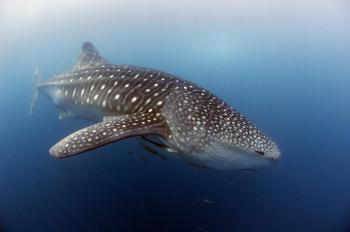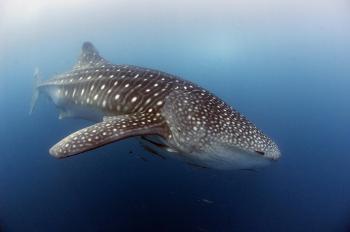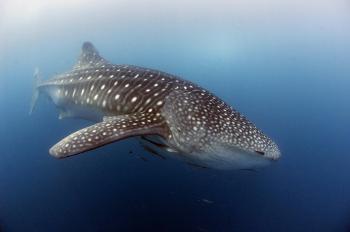SYDNEY—According to legend, Australian naturalist Steve Irwin would walk out of Chinese restaurants when he found out they served shark fin soup. Taking a stand on shark finning, however, has not stopped the practice or the dwindling numbers of sharks.
At least 35 species of open-ocean sharks and rays are currently facing extinction, according to the International Union for the Conservation of Nature’s (IUCN) Red List. Yet, in many countries, particularly in Asia, the fins are harvested in situ while the shark is still alive, with the body dumped back into the water, as the meat is worthless in comparison.
Death is rarely immediate. No longer able to swim, the shark sinks to the ocean floor and usually dies slowly due to starvation or predation by other fish.
Sharks are apex predators and therefore play a key role in maintaining the balance of oceanic ecosystems. They are particularly vulnerable to overfishing as most species are slow to mature, some taking over 10 years, and produce relatively few young.
Other causes of decline mentioned in the United National Environment Program (UNEP) include pollution, habitat destruction, and depletion of prey species. According to Courtney Sakai, senior campaign director for the International marine conservation organization Oceana, “The global shark fin trade is driving the oceans to collapse.”
Sakai believes that something must be done, and trade measures are the most direct way to ensure that powerful economic incentives to catch sharks do not cause their extinction.
With dubious health benefits symbolizing wealth and prestige, shark fin soup, originally a Chinese delicacy, is now available throughout Asia, as well as in Australia.
In Chinese culture, shark fin is regarded as an aphrodisiac and tonic, believed to strengthen the internal organs and retard ageing. Aficionados may enjoy the glutinous texture, but fins are composed of collagen, similar to human fingernails, with little nutritious value and no taste.
The soup is actually flavored by other ingredients, such as abalone and chicken stock. Furthermore, shark fins tend to contain high concentrations of methylmercury, often several times higher than the levels considered safe for human consumption, due to bioaccumulation up the food chain.
Yet with shark fin soup able to fetch over US$100 a bowl, it is no wonder that this lucrative trade is flourishing.
At least 35 species of open-ocean sharks and rays are currently facing extinction, according to the International Union for the Conservation of Nature’s (IUCN) Red List. Yet, in many countries, particularly in Asia, the fins are harvested in situ while the shark is still alive, with the body dumped back into the water, as the meat is worthless in comparison.
Death is rarely immediate. No longer able to swim, the shark sinks to the ocean floor and usually dies slowly due to starvation or predation by other fish.
Sharks are apex predators and therefore play a key role in maintaining the balance of oceanic ecosystems. They are particularly vulnerable to overfishing as most species are slow to mature, some taking over 10 years, and produce relatively few young.
Other causes of decline mentioned in the United National Environment Program (UNEP) include pollution, habitat destruction, and depletion of prey species. According to Courtney Sakai, senior campaign director for the International marine conservation organization Oceana, “The global shark fin trade is driving the oceans to collapse.”
Sakai believes that something must be done, and trade measures are the most direct way to ensure that powerful economic incentives to catch sharks do not cause their extinction.
With dubious health benefits symbolizing wealth and prestige, shark fin soup, originally a Chinese delicacy, is now available throughout Asia, as well as in Australia.
In Chinese culture, shark fin is regarded as an aphrodisiac and tonic, believed to strengthen the internal organs and retard ageing. Aficionados may enjoy the glutinous texture, but fins are composed of collagen, similar to human fingernails, with little nutritious value and no taste.
The soup is actually flavored by other ingredients, such as abalone and chicken stock. Furthermore, shark fins tend to contain high concentrations of methylmercury, often several times higher than the levels considered safe for human consumption, due to bioaccumulation up the food chain.
Yet with shark fin soup able to fetch over US$100 a bowl, it is no wonder that this lucrative trade is flourishing.
Conservation Before Economics?
In February, an international convention on the Conservation of Migratory Species of Wild Animals (CMS) listed seven shark species in urgent need of international conservation. Consequently, 113 countries signed a U.N. treaty to conserve these migratory sharks, including the great white, basking, and whale sharks, and shortfin and longfin makos.
Australia is a signatory to CMS, but Environment Minister Peter Garrett is allowing continued recreational fishing of the porbeagle and makos, citing a lack of evidence that these species are under threat in Australia.






